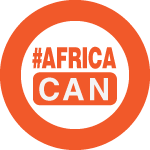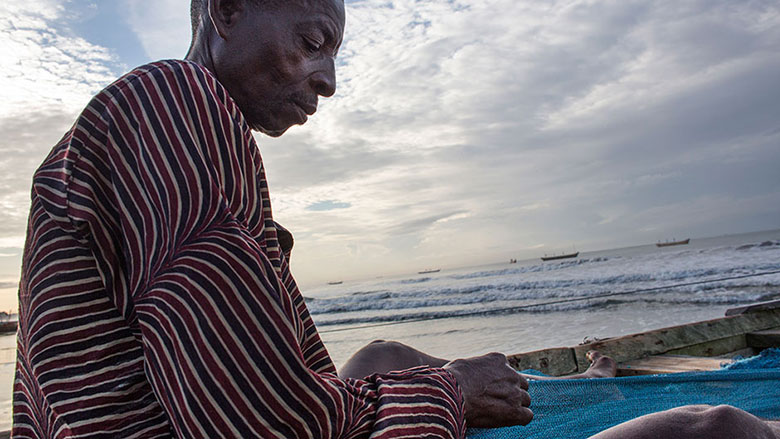Mozambique borders Tanzania, Malawi, Zambia, Zimbabwe, South Africa, and Eswatini. Its long Indian Ocean coastline of 2,700 kilometers faces east to Madagascar. About two-thirds of its estimated 33 million people (2023) live and work in rural areas. The country has ample resources, including arable land, abundant water sources, energy, mineral resources, and newly discovered natural gas deposits off its coast. The country has three deep seaports and a relatively large potential pool of labor. It is also strategically located: four of the six countries it borders are landlocked and hence are dependent on Mozambique as a gateway to global markets.
Political Context
Since Mozambique gained independence from Portugal in 1975, adopting multiparty democracy in 1992, the Front for the Liberation of Mozambique (FRELIMO) has maintained control. FRELIMO and the Optimist Party for the Development of Mozambique (PODEMOS) are currently the parties with largest representation in parliament, with the Mozambican National Resistance (RENAMO) and the Mozambique Democratic Movement (MDM) trailing behind them.
The general elections in Mozambique, held on October 9, 2024, resulted in the ruling FRELIMO party’s candidate, Daniel Chapo, being declared the winner with 65 % of the vote. FRELIMO also secured a majority in Parliament and all 10 provincial governor positions. The opposition party PODEMOS, backing candidate Venâncio Mondlane, won 43 seats, overtaking RENAMO as the main opposition party in Parliament. This ended decades of two-party dominance by FRELIMO and RENAMO, reshaping Mozambique’s political landscape. The results of the elections were disputed and triggered civil unrest. The situation has since stabilized, following a political dialogue between the government and the opposition.
Cabo Delgado conflict. Since its inception in 2017, the nearly eight-year conflict in Mozambique’s gas-rich, northernmost province of Cabo Delgado has exacted a high cost in terms of lives and livelihoods, as well as in terms of damage to physical infrastructure, and to the human and social capital of the region. As of mid-March 2025, the conflict has resulted in 5,947 fatalities and around 580,000 people displaced – down from 1.2 million at its peak in November 2022, with 610,981 of the displaced having returned to their places of origin as of mid-October. Although the situation on the ground has somewhat stabilized – with support from the now drawn down SADC troops and still deployed Rwandan forces – it remains volatile with ongoing low-level attacks. The US Exim Bank recently green lighted a $4.7 billion loan to TotalEnergies for its $20 billion Mozambique Liquified Natural Gas (LNG) Project, which had been frozen since the company declared force majeure in the wake of the 2021 attacks on Palma. This financing is key to the viability of the project on the Afungi peninsula, which is due to be relaunched in mid-2025, and represents an important economic opportunity for Mozambique. Work is underway to rehabilitate destroyed districts in the north of the province under the Government’s Plano de Reconstrução de Cabo Delgado, supported by World Bank-financed investments and approved in 2021, while in 2022, the Government has also approved the Programa de Resiliência e Desenvolvimento Integrado (PREDIN) do Norte de Moçambique, a recovery, development, and peacebuilding plan for the three northern provinces of Niassa, Cabo Delgado, and Nampula.
Challenges related to civic voice remain. The 2023 CIVICUS Monitor Report downgraded Mozambique's civic space from “obstructed” to "repressed," while the 2024 Freedom House report deems its expression "Partially Free." The Economist Intelligence Unit 2023 Democracy Index considers Mozambique’s governance “authoritarian” based on various democratic indicators.
Economic Outlook
GDP growth decelerated to 1.8% in 2024, down from 5.4% in 2023, mainly due to post-election disruptions in Q4 2024. Heavy rains affected agricultural output, while a slowdown in the extractive sector further dampened economic activity. The Coral South LNG Project reached full capacity in 2023, contributing less to growth in 2024.
Inflation further eased to 3.2% in 2024, from 7.1% in 2023 and 10.3% in 2022, supported by lower global oil and food prices, a stable exchange rate, and the Central Bank's tight monetary policy. The Central Bank started loosening monetary policy in 2024, reducing the benchmark interest rate from 17.25% in January 2024 to 12.25% in February 2025, and lowering reserve requirement rates for local currency from 39% to 29% in January 2025.
Although the economic outlook is broadly positive, it is subject to considerable uncertainty, with risks tilted to the downside. Delays in the construction of the main LNG project could undermine growth prospects. Other risks stem from fiscal slippages from the large wage bill, climate shocks, increasing domestic debt costs, and uncertainty around the security situation in the north.
The national poverty rate surged from 48.4% to 62.8% between 2014/15 and 2019/20. The number of poor increased from 13.1 to 18.9 million, partly reflecting the impact of COVID-19 on families. There has been a disproportionate increase in poverty in urban areas. This can be explained by the fact that, while there has been a generalized contraction in consumption, urban areas appear to have been disproportionately impacted by the global pandemic due to the heavier impacts of reduced mobility and slower economic activity.
Development Challenges
The economy has faced persistent challenges since 2015, including the hidden debt crisis, cyclones, COVID-19, an ongoing conflict in the north, and the recent post-electoral unrest. Growth remains fragile, heavily reliant on extractives. Real gross national income (GNI) per capita declined by 9% between 2016 and 2023.
Agriculture employs over 70% of the population but struggles with low productivity, climate change-related vulnerabilities, and insufficient investment in infrastructure and inputs. Rural poverty remains entrenched, and the informal sector dominates the labor market, accounting for over 80% of employment. Widespread informality, inappropriate infrastructure, and business constraints limits productivity growth and domestic revenue mobilization.
Fiscal pressures have intensified, placing Mozambique at a critical juncture. The wage bill and interest payments absorbed 92% of tax revenues in 2024, leaving limited resources for critical public investments in education, healthcare, and infrastructure. Additional financing constraints include a high risk of public debt distress, the lack of access to international capital markets, and a shallow domestic market.
High underemployment and inequality are significant barriers to economic inclusion, while the informal sector, which encompasses over 80% of the labor force, dominates the labor market, leaving many workers without social protection. With a human capital index of 0.36, the extremely low levels of human capital constitute a structural constraint to rapid, inclusive, and sustainable growth. The scarcity of sound training and the insufficient channels between supply and demand lead to a weak labor market and low productivity growth. Disempowerment among girls and women hinders growth through unfavorable fertility levels, high child and maternal mortality, low levels of skills among women, and poor productivity of women in the labor market.
Basic services in education and health are unevenly delivered across the country, driving spatial inequalities. The mechanisms set up to protect the most vulnerable from the impacts of shocks are limited, thus leading to fragility, instability, and violence.
A more resilient and inclusive economic model is essential to create jobs, reduce poverty, and manage vulnerabilities to shocks. Reducing wage bill pressures, enhancing spending efficiency, and improving debt management are crucial for fiscal sustainability. In parallel, managing future LNG revenue streams effectively, improving access to finance, investing in education, closing infrastructure gaps, and addressing regulatory challenges are critical for job creation, structural transformation, and reducing fragility.
Last Updated: Apr 15, 2025








